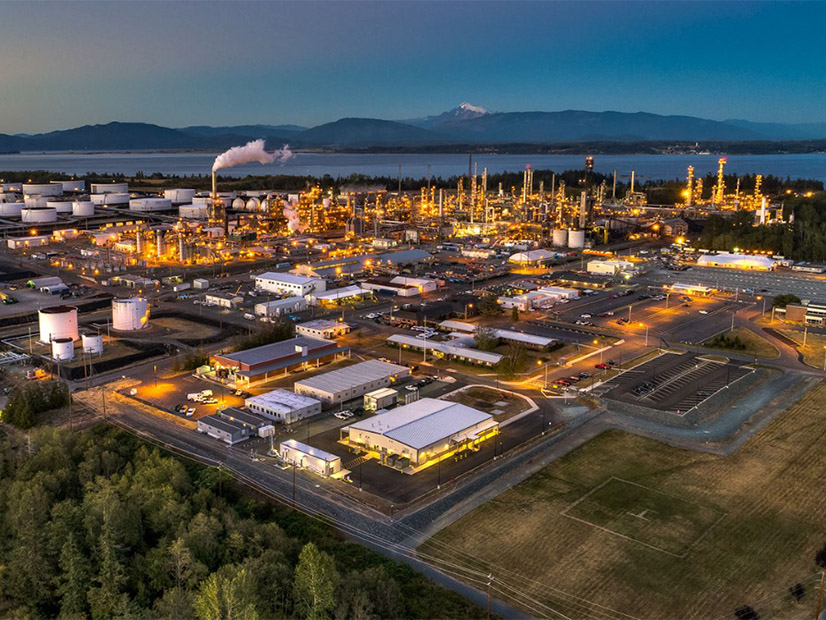
Washington’s first quarterly carbon allowance auction of 2024 has thrown two new wrinkles into the economics of the state’s fledgling — and controversial — cap-and-invest program.
Washington’s first quarterly carbon allowance auction of 2024 has thrown two new wrinkles into the economics of the state’s fledgling — and controversial — cap-and-invest program.
First: The auction cleared at $25.76 per allowance. That’s sharply lower than clearing prices in 2023’s four quarterly auctions, which took a lot of blame for Washington’s high gasoline prices last summer.
Second: The March 6 auction, results for which were announced by the state’s Department of Ecology on March 13, raised $135.5 million, setting a dramatically slower pace than is needed to reach the $941 million the state predicted it would collect in the first half of 2024.
Last year the auctions cleared at $48.50 in the first quarter of 2023, $56.01 in the second, $63.03 in the third and $51.89 in the fourth. Those prices were significantly higher than predicted, and cap-and-invest critics blamed them for adding 21 to 50 cents per gallon to Washington’s traditionally high gas prices.
Washington has always had some of the nation’s highest gas prices due to geographical and economic factors outside the cap-and-invest program. Average gas prices in the state are currently $4.22 per gallon compared with a national average of $3.40, according to AAA.
High gasoline prices have led conservatives to back a November referendum seeking to repeal the cap-and-invest program. (See Wash. Cap-and-trade Opponents Advance Repeal Petition to Sec. of State.)
Ecology Department spokesperson Caroline Halter said demand for allowances “remained strong” despite the sharp decline in settlement prices compared with the December 2023 auction.
“As in past auctions, all available allowances were sold, and there were more bids than available allowances,” Halter told NetZero Insider in an email. An external auction monitor for the sales did not find any evidence of market manipulation and determined that the auction was conducted fairly, she added.
Washington’s Office of Financial Management said the auction’s $135.5 million in revenue is $108-$110 million less than predicted. The state has raised $1.96 billion in cap-and-invest revenue since last year.
The OFM noted five quarterly auctions remain in the budget biennium running from May 1, 2023, through June 30, 2025. These include two in June and September that run prior to the November referendum. Three more are scheduled for December, March 2025 and June 2025.
With the November referendum being a factor in assembling a supplemental budget for July 2024 through June 2025, the state Legislature put language in its budget bills to keep $816 million in cap-and-invest revenue from being appropriated until Jan. 1, 2025, OFM spokesperson Hayden Mackley told NetZero Insider. Consequently, if cap-and-invest is repealed, that $816 million in appropriations would be rendered moot.
“Regarding gas prices, OFM can’t speak to the effect of the auction on those — we don’t have any insight into or control over businesses’ pricing strategies,” Mackley wrote.
Gov. Jay Inslee (D) spokesperson Jaime Smith added: “Even as allowance prices were relatively high throughout the fall and winter, gas prices fell to a two-year low, showing how difficult it is to infer direct impacts.”
Washington is exploring joining the joint California-Quebec carbon market to help bring down auction prices. California-Quebec bid prices increased from $19 in 2021 to $41.76 last month, according to the California Air Resources Board. The results from last week’s auction mean that Washington’s allowance prices have now dropped below California’s for the first time.
